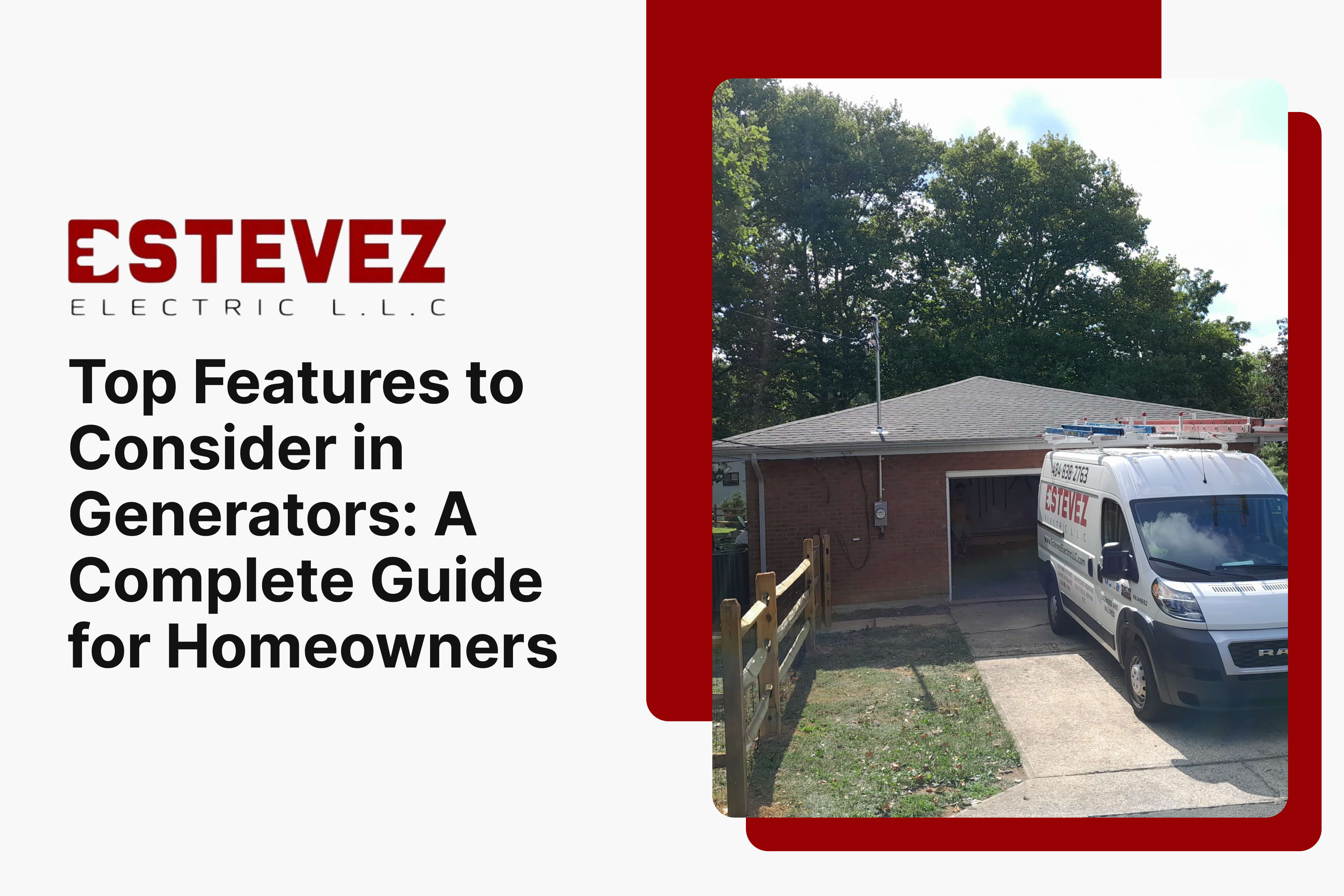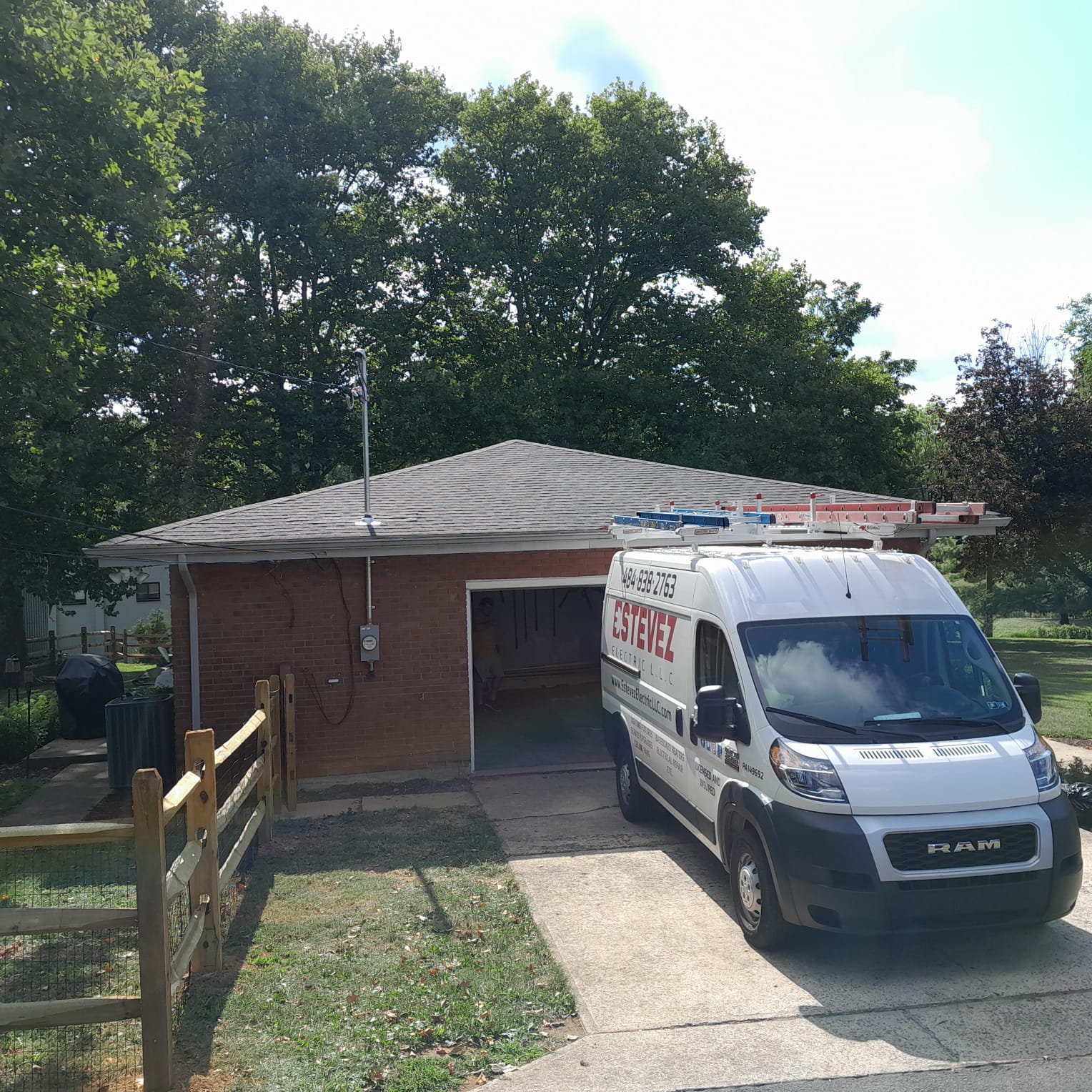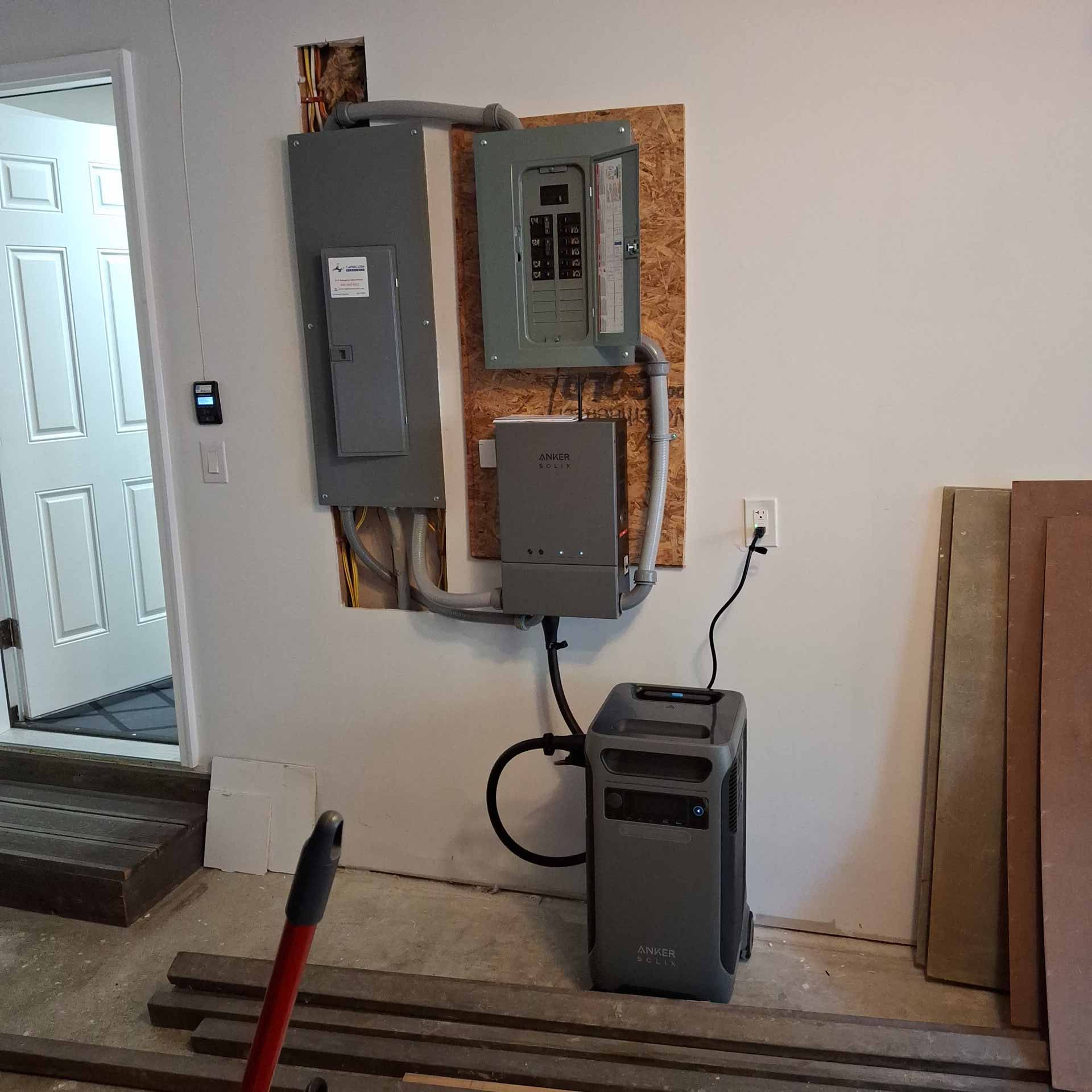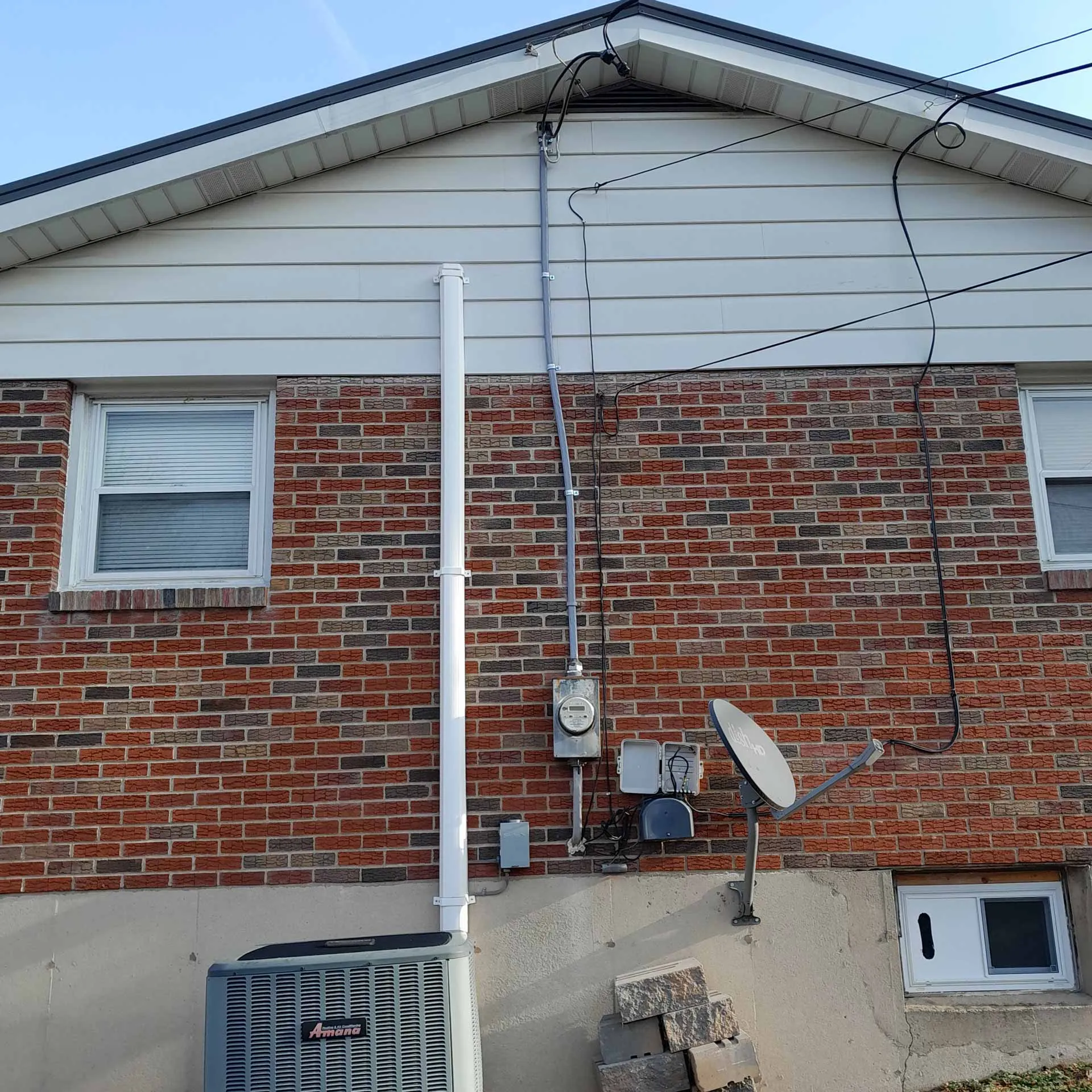Key Takeaways
- Power output is the most critical factor – determine your specific wattage needs before purchasing
- Fuel type affects runtime, maintenance requirements, and convenience – options include gasoline, propane, natural gas, and diesel
- Noise levels vary significantly between models – consider your neighborhood and local regulations
- Safety features like automatic CO shutdown are essential for protecting your family
- Consider portability versus permanent installation based on your specific needs and budget
- Smart features and remote monitoring capabilities provide convenience and peace of mind
- Regular maintenance is crucial for ensuring reliability during power outages
- Professional installation ensures safety, code compliance, and optimal performance
- Generator size should match your specific household requirements to avoid wasting money or insufficient power
- The right generator is an investment in your home’s resilience and your family’s comfort during emergencies
Understanding Your Power Needs
Power outages can happen anytime, leaving your home dark and without essential services. They might be caused by bad weather, grid problems, or planned maintenance. These outages can affect your comfort, safety, and daily life. A good generator gives you peace of mind that your home will stay powered during these times, keeping essential appliances working, security systems on, and your family comfortable.
Before looking at generator features, you need to know your power needs. The most important thing in choosing a generator is getting the right size. If it’s too small, it won’t power your essential appliances. If it’s too big, you waste money. Selecting the right generator means figuring out both running watts (continuous power) and starting watts (initial surge) for the appliances you need. This makes sure your generator can handle both the regular electrical load and the brief surges when motor-driven appliances start up.
To figure out your power needs, make a list of essential appliances and their wattage. Common items include refrigerators (700-1,000 watts), sump pumps (800-1,000 watts), furnace fans (750 watts), lights (60-100 watts each), and electronics. Remember that appliances with motors, like refrigerators and air conditioners, need extra starting watts—often 2-3 times their running wattage. A typical home needs about 5,000 watts for essential functions, though your needs may be different based on your home’s size and what you consider essential. During a long outage, you might run different appliances at different times to get the most from your generator while keeping critical systems running.
Power Output and Generator Types
Once you know your power needs, you’ll need to look at the different types of generators. Each type has its own benefits and works best for specific situations. Understanding these differences will help you make a good choice about which generator is right for your home. The right choice depends on your budget, how often you have power outages, your power needs, and whether you need a permanent solution or just backup power for emergencies.
Portable generators are flexible, movable units that usually run on gasoline. They range from 3,000 to 8,500 watts and cost between $400 and $3,000. They’re great for powering essential appliances during short outages or for recreational use. But they need manual setup and operation, including refueling and connecting appliances with extension cords unless you have a transfer switch installed. Portable generators must be used outdoors in well-ventilated areas at least 20 feet from your home to prevent carbon monoxide poisoning. They’re a good choice if you don’t have outages very often or if you need a generator for other things, like camping trips or outdoor projects where you don’t have power.
Inverter generators are a special type of portable generator that produces cleaner power, making them good for sensitive electronics. They’re usually quieter and more fuel-efficient than regular portable generators because they adjust engine speed based on the electrical load. These generators range from 900 to 7,600 watts and cost between $400 and $5,000, depending on size and features. Inverter technology produces electricity in three phases, resulting in power that’s as clean or cleaner than utility power. This makes inverter generators ideal for powering computers, smartphones, and other sensitive electronics that could be damaged by the fluctuating power from regular generators.
Fuel Type and Efficiency
The type of fuel your generator uses greatly affects its performance, maintenance needs, and operating costs. Different fuel options have various advantages and limitations, so it’s important to think about which is most practical for your situation. Factors to consider include fuel availability during emergencies, storage requirements, shelf life, cost, and environmental impact.
Gasoline is the most common fuel for portable generators. It’s easy to find but has a limited shelf life (3-6 months) unless treated with a stabilizer. Gasoline generators are typically less expensive at first but may cost more to run over time due to fuel prices and efficiency. Also, during widespread power outages, gasoline can become hard to find as gas stations may be without power. Gasoline must be stored carefully in approved containers away from living spaces, and fuel can go bad over time, potentially causing carburetor problems if the generator isn’t used for long periods.
Propane is another popular option. It burns cleaner than gasoline, doesn’t go bad, and is often available during power outages. Propane generators typically run quieter and need less maintenance than gasoline models. They can be connected to your home’s existing propane tank or use portable tanks, giving you flexibility in fuel storage. Propane produces about 10-15% less energy per gallon than gasoline, so you’ll need more fuel to generate the same amount of power. But its clean-burning properties result in less engine carbon buildup, potentially extending generator life and reducing maintenance needs.
Natural gas generators connect directly to your home’s gas line, eliminating the need for refueling or fuel storage. This provides a continuous fuel supply during outages, as natural gas service is rarely interrupted. However, they may not be an option if your home doesn’t have natural gas service. Natural gas produces the least amount of energy per volume compared to other generator fuels, requiring larger engines to produce equivalent power. Some generators offer dual-fuel capability, allowing them to run on either natural gas or propane.
Noise Level Considerations
Generator noise can be a big concern, especially in residential areas with noise rules or close neighbors. Understanding noise ratings and features that reduce noise can help you choose a generator that won’t create problems with your neighbors or disturb your household. Too much noise can lead to neighbor complaints, violations of local rules, and a less comfortable environment during power outages. Luckily, generator technology has improved a lot in recent years, with many models now offering much quieter operation than older generators.
Generator noise is measured in decibels (dB), with higher numbers meaning louder operation. For comparison, normal talking is about 60-70 dB, a vacuum cleaner is 70-80 dB, and a lawn mower is 80-90 dB. Traditional portable generators typically produce 65-95 dB of noise, while inverter generators are much quieter at 50-65 dB. When comparing generator noise levels, remember that the decibel scale is logarithmic, meaning that a 10 dB increase represents a tenfold increase in sound intensity.
Several features can help reduce generator noise. Sound-dampening enclosures greatly reduce noise transmission, while better mufflers can minimize engine noise. Anti-vibration mounts prevent vibrations from making sound louder, and eco mode (available on many inverter generators) reduces engine speed and noise when full power isn’t needed. If noise is a major concern, think about getting an inverter generator. Also, where you put your generator can help with noise issues. Installing the unit away from bedrooms and living areas, using sound barriers like fences or landscaping, and placing the generator on vibration-absorbing pads can all help reduce noise levels.
Before buying a generator, check your local noise rules and homeowners’ association rules about acceptable noise levels and when generators can be used. Some communities have specific rules about generator noise, especially at night. Following these rules is important to avoid possible fines or problems with neighbors. If you live in an area with very strict noise rules, you might need to invest in a premium generator with better sound-dampening features or consider additional sound-reduction strategies during installation. Working with a professional installer who understands local rules can help make sure your generator installation meets all requirements while minimizing noise impact.
Safety Features
Safety should be your top priority when picking a generator. Modern generators come with various safety features designed to protect your home and family from potential dangers. Understanding these safety features is essential for making a good decision. Generator accidents, including carbon monoxide poisoning, electrical shocks, and fires, can be very serious, making safety features not just nice to have but potentially life-saving necessities.
Carbon monoxide (CO) poisoning is one of the most serious risks with generator use. Never use a generator indoors or near windows, doors, or vents. Look for models with automatic CO detection and shutdown, which detect dangerous CO levels and automatically turn off the generator. Some newer models also produce much less CO than traditional generators. The Consumer Product Safety Commission reports that portable generators cause about 70 deaths each year from CO poisoning in the United States. Modern generators with CO detection systems use sensors to monitor carbon monoxide levels around the unit and automatically shut down if dangerous levels are detected.
Electrical safety features are also important. Look for generators with Ground Fault Circuit Interrupter (GFCI) outlets, which protect against electrical shock by quickly shutting off power when they detect a ground fault. Overload protection prevents damage from power surges, while low-oil shutdown automatically turns off the generator when oil levels are too low, preventing engine damage. Generators produce a lot of electrical current that can cause severe shocks, burns, or electrocution if not properly managed. GFCI protection is particularly important when using generators in wet conditions, as moisture greatly increases the risk of electrical shock.
A transfer switch is essential for safely connecting a generator to your home’s electrical system. This device prevents dangerous backfeeding, which can endanger utility workers and damage your electrical system. At Estevez Electric LLC, we recommend and install proper transfer switches with all generator installations to ensure your system meets electrical codes and operates safely. Backfeeding happens when generator power travels back through your home’s wiring and out to the utility lines, creating a serious electrocution hazard for utility workers who may be fixing lines they believe are turned off.
Portability vs. Permanent Installation
Deciding between a portable generator and a permanently installed system depends on your specific needs, budget, and how you plan to use the generator. Both options have distinct advantages and limitations that should be carefully considered.
Portable generators offer flexibility and typically cost less upfront, making them a good choice for occasional power outages or temporary power needs. They can be moved as needed and stored when not in use. However, they require manual setup during outages, including wheeling the unit outside, connecting appliances with extension cords, and refueling as needed. Look for models with sturdy wheels, handles, and a manageable weight if you’ll need to move the generator often. Portable generators are particularly well-suited for homeowners who don’t have outages very often or who need a power source for multiple locations, such as a primary home and a vacation property or campsite.
Permanently installed generators offer convenience and reliability but require professional installation and a higher initial investment. These systems can start automatically when power fails, typically within seconds, and connect directly to your home’s electrical system via a transfer switch. They’re designed to withstand outdoor conditions year-round and, when connected to natural gas lines, eliminate refueling concerns. These generators are ideal for areas that often have long power outages, homes with medical equipment that needs constant power, or homeowners who travel frequently. These systems provide seamless power transition during outages, with no need to go outside during storms or extreme weather.
At Estevez Electric LLC, we specialize in professional generator installation, ensuring your system is properly sized, safely installed, and fully compliant with local codes. Our experienced technicians can help you determine whether a portable or permanently installed generator is the best choice for your specific situation. We consider factors such as your power requirements, budget constraints, the frequency and duration of outages in your area, and your preferences regarding convenience and automation. Our comprehensive installation services include site evaluation, electrical connection, fuel line installation, and thorough testing to ensure your generator performs reliably when needed.
Smart Features and Remote Monitoring
Modern generators increasingly include smart technology that improves convenience, efficiency, and peace of mind. These features are particularly valuable for homeowners who travel frequently or have vacation properties where power outages might go unnoticed. Smart technology transforms generators from simple backup power sources into sophisticated systems that can be monitored and managed remotely.
Many newer generator models offer smartphone apps that allow you to monitor generator status, receive alerts, and even control some functions remotely. Wi-Fi or cellular connectivity keeps you connected to your generator from anywhere, while email or text alerts notify you about power outages, maintenance needs, or potential issues. These smart features provide valuable information and control, even when you’re away from home. Advanced monitoring systems track generator performance metrics including runtime hours, power output, fuel levels, and maintenance schedules, giving you comprehensive insight into your system’s operation and health.
Smart generators often include self-diagnostic capabilities that regularly check system components and alert you to potential problems before they become serious. Automated exercise cycles run periodic self-tests to ensure readiness, while maintenance reminders notify you when service is due based on actual usage. These features add convenience and can extend the life of your generator by ensuring proper maintenance and quickly identifying potential issues. Self-diagnostic systems continuously monitor critical components like battery voltage, oil pressure, coolant temperature, and fuel systems, providing early warning of developing problems that could affect performance during an actual outage.
When shopping for a generator with smart features, think about which capabilities are most important to you. Basic models might offer simple maintenance reminders, while more advanced systems provide comprehensive monitoring and control options. While these features add to the initial cost, they can provide significant value through improved reliability and reduced maintenance issues. The level of connectivity also varies between models—some require a local Wi-Fi network to function, while others include cellular connectivity that works independently of your home internet service, providing more reliable communication during outages when your internet service may be disrupted.
Maintenance Requirements and Reliability
Regular maintenance is essential for ensuring your generator performs reliably when you need it most. Understanding maintenance requirements helps you plan for the long-term ownership of your generator and ensures it will be ready when an outage occurs. A well-maintained generator can provide decades of reliable service, while neglected maintenance can lead to failures precisely when you’re counting on backup power during an emergency situation.
All generators require periodic maintenance, including oil changes (typically every 50-200 operating hours), air filter replacement (every 100-200 operating hours or annually), spark plug inspection/replacement (every 100-200 operating hours), and fuel system maintenance. Proper maintenance extends your generator’s lifespan and ensures reliable operation during power outages. The specific maintenance schedule depends on your generator type, fuel source, and usage patterns. Gasoline generators typically require more frequent maintenance than propane or natural gas models due to fuel system issues like carburetor gumming from stale fuel.
While you can do some maintenance yourself, professional service is recommended for annual inspections, load bank testing (which verifies the generator can handle its rated capacity), and transfer switch testing. Think about a service plan for regular professional maintenance. With proper maintenance, portable generators typically last 1,000-2,000 operating hours, while permanently installed generators can last 10,000-30,000 hours. For most homes, this means 10-20 years of service, depending on how often you use it and how well you maintain it. Professional maintenance services typically include comprehensive inspections of electrical connections, fuel systems, engine components, and control systems.
When comparing generator models, consider the manufacturer’s reputation for reliability and the availability of local service and parts. A slightly more expensive generator from a reputable manufacturer with good local support may provide better value in the long run than a cheaper model that’s difficult to maintain or repair. Leading generator brands typically maintain extensive service networks and parts inventories, ensuring that repairs can be completed quickly when needed. Some manufacturers offer extended warranties that cover both parts and labor for up to 10 years, providing additional peace of mind and protection for your investment.
Installation Requirements and Considerations
Proper installation is crucial for generator safety, performance, and longevity. Understanding the installation requirements will help you prepare for this important step and ensure your generator operates safely and efficiently. Installation considerations include physical placement, electrical connections, fuel supply, noise mitigation, and compliance with local building codes and regulations.
Generator placement must meet several requirements. The unit should be installed at least 18-20 feet from doors, windows, and vents to prevent carbon monoxide from entering your home. It requires a level surface, typically a concrete pad or stable platform, and sufficient clearance around the unit for servicing. Local codes and homeowners’ association rules may dictate placement, noise limits, and screening requirements. The installation location must also consider factors such as proximity to the electrical panel and fuel source, accessibility for maintenance, protection from flooding or water damage, and aesthetic impact on your property.
A proper electrical connection is essential for safety. Generators require a transfer switch for connecting to your home’s electrical system, and most places require permits for generator installation. Professional installation is strongly recommended to ensure code compliance and safety. For natural gas or propane generators, proper sizing of gas lines ensures adequate fuel flow, and professional gas line installation is required for safety and code compliance. The electrical connection must be designed to handle the generator’s maximum output while providing protection against backfeeding and ensuring proper grounding.
Our team at Estevez Electric LLC handles all aspects of generator installation, from getting permits to coordinating with gas companies, ensuring your system is installed safely and correctly. We’ll help you navigate the installation process and ensure your generator meets all local requirements. Our comprehensive installation services include site evaluation and preparation, concrete pad construction if needed, generator placement, electrical connections including transfer switch installation, fuel line connections, system testing, and owner training. We work with leading generator manufacturers and have extensive experience with various models and configurations.
Frequently Asked Questions About Home Generators
How long do home generators typically last?
With proper maintenance, portable generators typically last 1,000-2,000 operating hours, while permanently installed generators can last 10,000-30,000 hours. For most homes, this translates to 10-20 years of service, depending on usage frequency and maintenance quality.
Can I install a generator myself?
While portable generators can be set up by homeowners following manufacturer instructions, permanent generator installation requires professional expertise. This includes electrical connections, fuel line installation, and compliance with local codes. Professional installation ensures safety and proper operation.
How often should a generator be serviced?
Most manufacturers recommend annual professional service, plus regular oil changes every 50-200 operating hours (or at least annually). Regular maintenance is essential for reliability when you need your generator most.
What size generator do I need for my whole house?
Whole-house generators typically range from 15kW to 25kW for average homes. The exact size depends on your specific appliances, HVAC system, and whether you want to power everything simultaneously. A professional assessment is recommended to determine the right size.
Are generators safe to use during storms?
Generators must be operated in a dry, covered area that is still outdoors and well-ventilated. They should never be used in wet conditions without proper protection. Permanently installed generators have weather-resistant enclosures designed for all-weather operation. Always follow manufacturer safety guidelines.
How noisy are home generators?
Noise levels vary significantly: portable generators typically produce 65-95 dB (similar to a lawn mower), while modern permanently installed generators with sound-dampening technology can operate at 60-70 dB (conversation level). Inverter generators are generally the quietest portable option.
Conclusion: Making Your Final Generator Decision
Choosing the right generator is a big decision that affects your comfort, safety, and peace of mind during power outages. By carefully thinking about the features in this guide, you can pick a generator that meets your specific needs and provides reliable backup power when you need it most. Remember that the best generator for your home balances power capacity, fuel type, installation requirements, maintenance needs, and budget to create a solution that fits your unique situation.
Remember that a generator is a long-term investment in your home’s resilience. While initial costs may seem high, the protection and peace of mind provided during power outages make generators a valuable addition to any home, especially in areas prone to severe weather or unreliable power. When looking at the cost, think about not just the purchase price but also the potential losses prevented during long outages, including spoiled food, frozen pipes, mold damage from non-working sump pumps, or the need to temporarily relocate. For many homeowners, the convenience and security of knowing their home will remain functional during outages justify the investment in a quality generator system.
At Estevez Electric LLC, we’re committed to helping homeowners in Allentown, PA and surrounding areas find, install, and maintain the perfect generator for their needs. Our experienced team provides complete generator services, from initial consultation and sizing to professional installation and ongoing maintenance. We understand that every home has unique power requirements, and we work closely with each client to design a backup power solution that addresses their specific concerns, preferences, and budget. Our expertise ensures that your generator will perform reliably when you need it most.
Contact us today to discuss your generator needs and take the first step toward ensuring your home stays powered, comfortable, and safe—no matter what weather or grid challenges come your way. Our friendly, knowledgeable staff will guide you through the selection process, answer your questions, and provide a detailed quote for the system that best meets your requirements. With Estevez Electric LLC, you’re not just buying a generator—you’re investing in expertise, quality installation, reliable service, and the confidence that comes from working with a trusted local company committed to your satisfaction and safety.







